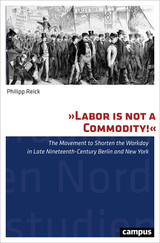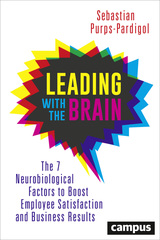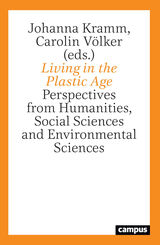6 start with L start with L

As Reick demonstrates, while on both sides of the Atlantic workers opposed the unchecked commodification of labor power as a violation of their political, social, and economic rights, the emerging movements for protection from commodification did not promote a universalist concept of rights. By showing that American and German workers drew upon a strikingly similar rationality when formulating demands, this book reveals that we cannot label either the US labor movement as a deviation from the supposed norm of industrial contestation or its German counterpart as the embodiment of that norm.


In Leading with the Brain, Purps-Pardigol presents seven factors all business leaders should keep in mind to not only make their workforce feel more satisfied, but also to increase the overall health and well-being of their staff. Drawing on real-life examples of businesses that succeed by managing according to scientific findings, Purps-Pardigol shows that by leading in a people-oriented, humane way, managers can release their employees’ hidden energies to the benefit of all.


The course of human lives in Western society is inescapably shaped by political, cultural, and economic factors. Changes in these spheres inevitably lead to changes in our conceptions of everything from childhood and adulthood to family structures and living arrangements. The nineteen articles collected in The Life Course Reader offer a range of both theoretical and empirical studies of changing conceptions of the life course. Drawing on data from North America and Europe, the Reader will be indispensable for anyone studying human development and the twenty-first century family.

The anthology Living in the Plastic Age focuses on the multidimensional facets of plastics and microplastics from different disciplinary angles. Small plastic fragments (microplastics) and larger plastic waste can be found even on the remotest island. Plastic waste all over the planet is the visual footprint of humanity’s consumerism and mass production. Plastics shape the relationship between society and nature in such a profound way that we can today speak of the “Plastic Age.” This anthology aims to question the role of plastics in our society and the implications plastics have for the environment and human health. The detection of this emergent contaminant opens up a new field of scientific engagement for natural sciences on the effects of (micro-) plastics for the environment and the social sciences on new governance regimes on marine litter as well as on solution strategies to combat plastic waste.
READERS
Browse our collection.
PUBLISHERS
See BiblioVault's publisher services.
STUDENT SERVICES
Files for college accessibility offices.
UChicago Accessibility Resources
home | accessibility | search | about | contact us
BiblioVault ® 2001 - 2024
The University of Chicago Press









